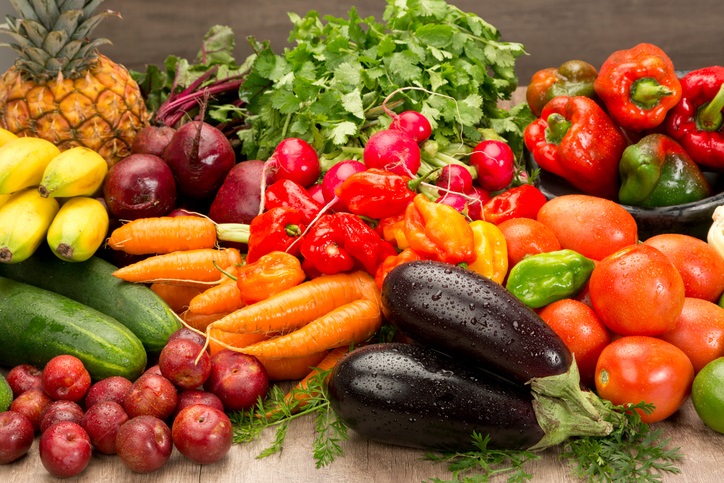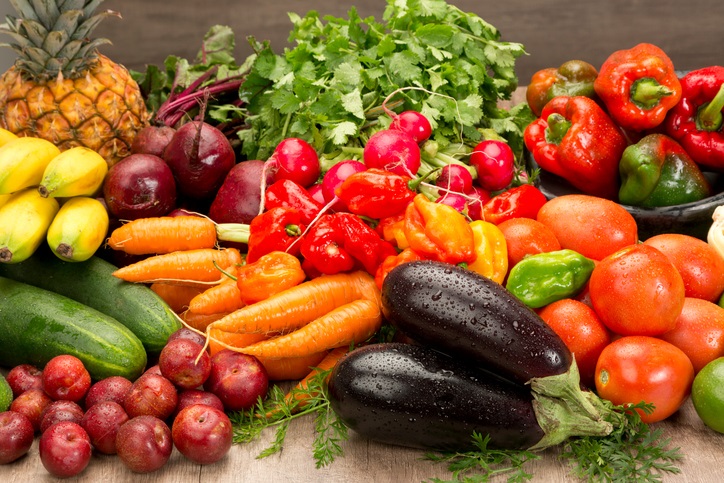Vegan diet may affect immunity, say health experts
Wed 19 Jul 2017, 13:21:05
Vegans, especially expectant mothers, run greater risk of suffering "lowered immunity" or contracting infection as their protein intake comes completely from plant-based diet, health experts today cautioned.
Top dieticians and nutritionists, who gathered in the capital to announce the launch of a protein awareness campaign in the country, also emphasised that pregnant women cannot achieve optimal protein intake with exclusive vegetarian diet.
"There are many myths surrounding sources of protein and people are confused about the dietary protein intake and often assume that it is for body builders only. And, while for non- vegetarians, there is a whole range of food as a protein-rich source, for vegetarians, milk is a major source besides, cereal and legumen.
"For expectant mothers, who are vegetarians, milk can suffice the intake, but problem is for vegans, who take only plant-based diet," Nutritional pathologist and former director of National Institute of Nutrition, Dr. D Sesikeran said.
He was interacting with reporters at pre-launch event of -- The Protein Week, a first such initiative in the country.Delhi Chapter of the Indian Dietetic Association (IDA), today declared that the week would be observed from July 24- 30. The initiative is supported by the Protein Foods Nutrition Development Association of India (PFNDAI).
Sesikeran said if a vegan takes proper diet of soya, besides other plant diet, he or she "could achieve the protein requirement but in case of pregnant women, they cannot achieve optimal protein intake with exclusive vegetarian diet. She must take milk to supplement the requirement."
"In vegans, inadequate protein intake can lower their immunity and they run greater risk of contracting infection vis-a-vis people who are vegetarians or non-vegetarians," he said, adding, "in case of pregnant mothers, the immunity of the progeny can also get affected".
Vegans are
persons who do not eat or use animal products. Their diet is completely plant-based, such as vegetables, fruits and they do not even consume dairy products, including milk.
persons who do not eat or use animal products. Their diet is completely plant-based, such as vegetables, fruits and they do not even consume dairy products, including milk.
Anuja Agarwala, nutritionist in the Department of Pediatrics at the AIIMS and former president of the IDA's Delhi Chapter, said, "Vegans can also suffer mineral deficiency if their protein intake is not adequate."
The experts highlighted that many people, especially the youth are taking to veganism, "out of fashion" or "out of sensitivity towards animal and environmental rights"."Many youth are taking up veganism, after getting impacted by images of animal slaughter. But, even if one takes to veganism, the protein intake must be adequately supplemented, otherwise it will lead to health issues," she said.
Mumbai-based Delton D'Souza (33), who turned vegan two years ago, however, says, the "protein yardstick" cannot be applied so strictly, as for a bodybuilder.
"I don't even eat soya, but I feel much fitter after taking up veganism. I have never felt any weakness, in fact, I can climb stairs in multi-storeyed buildings with much ease," he said.
Dieticians say, the effects of lower intake of protein, shows up later in the life, so, people need to be careful.Sesikeran said two factors are important as far as protein sources are concerned, its "quality and digestibility".
"Proteins source from vegetarian sources are poorer in content and have low digestibility. Also, during pregnancy, the requirement of an expectant mother rises," he said, adding, "excess of proteins as taken by some bodybuilders, can also prove detrimental".
"The keywords are quality, moderation and variety," said Dr Seema Puri, national vice president of the IDA.
"One should include at least one protein source in each of one's three major meals and two snacks to keep the body's protein balance positive," Agarwala said.
No Comments For This Post, Be first to write a Comment.
Most viewed from Health
AIMIM News
Latest Urdu News
Most Viewed
May 26, 2020
Do you think Canada-India relations will improve under New PM Mark Carney?
Latest Videos View All
Like Us
Home
About Us
Advertise With Us
All Polls
Epaper Archives
Privacy Policy
Contact Us
Download Etemaad App
© 2025 Etemaad Daily News, All Rights Reserved.
































